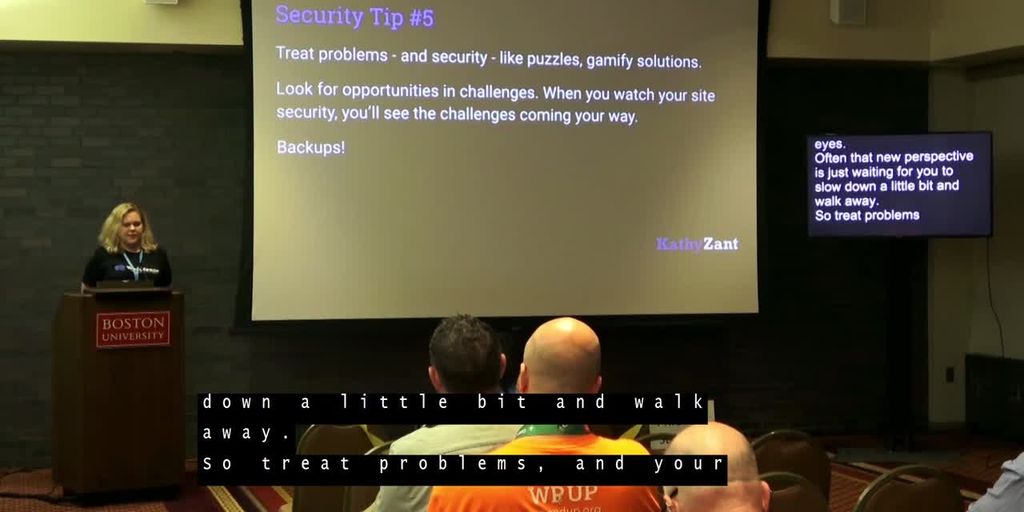
The first year of parenthood is a transformative journey filled with joy, challenges, and countless learning experiences. As new parents, navigating through feeding, sleep, health, bonding, personal well-being, developmental milestones, and essential baby gear can be overwhelming. This comprehensive guide provides essential advice to help you confidently and successfully navigate your baby’s first year.
Key Takeaways
- Trust your instincts and listen to your baby’s cues; you know your baby best.
- Create a safe and nurturing environment for your baby’s sleep and play.
- Stay informed about feeding practices, health check-ups, and developmental milestones.
- Build a strong bond with your baby through skin-to-skin contact, reading, and talking.
- Seek support from family, friends, and parenting communities to manage your well-being.
Feeding Your Baby: Best Practices for New Parents

Feeding your baby is one of your most important tasks as a new parent. Whether you choose to breastfeed, formula feed, or a combination of both, it’s essential to understand the best practices to ensure your baby is well-nourished and healthy.
Breastfeeding Tips and Techniques
Breastfeeding can be a rewarding experience for both mother and baby. Proper latch is crucial for effective breastfeeding and to prevent discomfort. If you encounter issues like poor latch or clogged ducts, don’t hesitate to seek help from a lactation consultant. Remember, frequent feeding is normal; newborns often eat every 2 to 3 hours.
Formula Feeding: What You Need to Know
If you opt for formula feeding, it’s important to choose a formula that meets your baby’s nutritional needs. Follow the instructions on the formula packaging carefully to ensure proper preparation. Keep in mind that most newborns eat every 2 to 3 hours, and 8 times is generally recommended as the minimum every 24 hours. Always ensure bottles and nipples are sterilized to maintain hygiene.
Introducing Solids: When and How
Introducing solids is an exciting milestone. Typically, babies are ready for solids around 6 months of age. Start with single-ingredient purees and gradually introduce a variety of foods. Watch for signs of readiness, such as sitting up with support and showing interest in food. Remember, breast milk or formula should still be the primary source of nutrition during the first year.
Feeding your baby is a journey that requires patience and attentiveness. Trust your instincts and seek support when needed to ensure your baby thrives.
Ensuring Safe Sleep for Your Newborn

Creating a Safe Sleep Environment
To reduce the risk of Sudden Infant Death Syndrome (SIDS), it’s important to follow safe sleeping guidelines. Place your baby on their back to sleep, use a firm mattress in a crib or bassinet, keep loose bedding and toys out of the sleeping area, and avoid overheating your baby with excessive clothing or blankets.
Understanding Sleep Patterns
Newborns can be so active in their sleep. Understanding your baby’s sleep patterns can help you create a more effective sleep routine. Newborns typically sleep in short bursts and may wake frequently for feeding. Recognizing these patterns can help you adjust your expectations and routines accordingly.
Dealing with Sleep Challenges
Sleep deprivation doesn’t have to rule your world. If you’re facing sleep challenges, consider these tips:
- Establish a consistent bedtime routine.
- Create a calm and soothing sleep environment.
- Be patient and flexible as your baby’s sleep patterns evolve.
Remember, it’s going to be okay; I promise. We can get your baby sleeping.
Maintaining Your Baby’s Health and Well-being

Ensuring your baby’s health and well-being is a top priority for new parents. Regular check-ups with a pediatrician are crucial for tracking your child’s growth and development. Additionally, vaccinations are essential for defending your child from dangerous illnesses.
Regular Check-ups and Vaccinations
Seeing a pediatrician on a regular basis is crucial to tracking your child’s growth and development. Additionally, vaccinations are essential for defending your child from dangerous illnesses.
Recognizing Common Illnesses
Understanding the signs of common illnesses can help you take prompt action. Look out for symptoms like fever, unusual fussiness, or changes in eating and sleeping patterns. Early detection and treatment can make a significant difference.
Promoting Healthy Development
Observe the developmental milestones that your baby achieves, such as rolling over, smiling, sitting up, and chattering. These are crucial markers of your baby’s development. Encouraging activities like tummy time and interactive play can promote healthy growth.
Basic routine care practices for new parents include gently cleaning your baby’s body with a soft cloth and warm water. This helps maintain hygiene and prevents rashes.
Bonding with Your Baby: Building a Strong Connection

Bonding at an early age is crucial for brain development. By integrating these foundational tips into your daily parenting approach, you can make the transition into parenthood smoother and more enjoyable. Remember, each day is not just a learning opportunity for your child, but for you as well. With the right strategies, support, and mindset, you can navigate the early stages of parenthood with confidence, making these precious early moments as rewarding as possible.
Managing Your Own Well-being as New Parents

Becoming a parent is a life-changing experience that can be both rewarding and challenging. Prioritizing your own well-being is crucial for maintaining a healthy balance and being the best parent you can be.
Coping with Sleep Deprivation
Sleep deprivation is one of the most common challenges new parents face. It’s important to rest whenever possible, even if it means taking short naps throughout the day. Remember, it’s okay to ask for help from family and friends so you can catch up on sleep.
Balancing Responsibilities
Balancing the demands of parenthood with other responsibilities can be overwhelming. Create a schedule that allows you to manage your time effectively. Don’t hesitate to delegate tasks and share responsibilities with your partner. Embrace flexibility and be open to adjusting your expectations and plans.
Seeking Support and Building a Community
Building a support network is essential for new parents. Join parenting groups, attend local meetups, or connect with other parents online. Sharing experiences and advice can provide much-needed encouragement and reassurance. Don’t be afraid to seek professional help if you’re feeling overwhelmed or anxious.
Take care of yourself: Parenting is demanding, and it is essential to prioritize self-care. Make time for rest, eat nutritious meals, stay hydrated, and seek support when needed.
Navigating Growth and Development Milestones

Understanding and tracking your baby’s growth and development milestones is crucial during the first year. These milestones encompass physical, cognitive, and social skills, indicating that a baby is progressing as expected. While every baby develops at their own pace, you can use this list of expert-approved baby milestones to learn what to expect during that first year.
Tracking Physical Milestones
Physical milestones are the visible signs of your baby’s growth. From their first smile to their first steps, each achievement is a cause for celebration and a testament to their growth. Capture these moments through photos, videos, or a journal to create lasting memories.
Encouraging Cognitive Development
Cognitive development involves your baby’s ability to think, learn, and solve problems. Engage your baby with age-appropriate toys and activities that stimulate their senses and curiosity. Reading to your baby and talking to them frequently can significantly boost their cognitive skills.
Celebrating Achievements
Celebrate your baby’s milestones, both big and small. Each achievement is a cause for celebration and a testament to their growth. Capture these moments through photos, videos, or a journal to create lasting memories.
Remember, milestones are specific to every individual baby. It can be more helpful to look at a range, so you can keep an eye out for developmental moments that may require a change in routine.
Essential Baby Gear and How to Use It Safely

Choosing the Right Car Seat
Selecting the right car seat is crucial for your baby’s safety. Ensure the car seat is appropriate for your baby’s age, weight, and height. Always follow the manufacturer’s instructions for installation and use. It’s also a good idea to have your car seat installation checked by a certified technician.
Using Baby Carriers and Strollers
Baby carriers and strollers provide convenience and mobility. When choosing a stroller, look for one that is sturdy and easy to maneuver. For baby carriers, ensure they offer proper support for your baby’s head and neck. Always check the weight limits and safety features before use.
Setting Up a Safe Nursery
Creating a safe nursery involves more than just decorating. Make sure the crib has a breathable mattress and a tight-fitting bottom sheet. Avoid using second-hand cribs to ensure they meet current safety standards. Additionally, keep the nursery free of small objects and choking hazards.
Babies need very little gear-wise in the first year of life. As I love to tell my clients, ‘Don’t let your reaction be to buy another contraption!’ Here’s the only safe items she feels babies need: a crib, a car seat, a stroller, and a high chair.
Safely Traveling with a Newborn
When traveling with a newborn, it’s essential to have a pack ‘n’ play for travel and new locations. This provides a safe and familiar place for your baby to sleep. Also, consider using a bassinet without motion or technology for added safety.
Essential Items to Consider
- A safe place for the baby to sleep, such as a crib, bassinet, or play yard.
- A pacifier to help soothe your baby.
- Swaddles and sleep sacks to keep your baby comfortable and secure.
- A bouncer chair for supervised playtime.
- A high chair for feeding once your baby starts solids.
Conclusion
Navigating the first year of parenthood is a journey filled with both challenges and beautiful moments. From mastering the basics of baby care to embracing the unexpected, every step is a learning experience. Remember, there is no one-size-fits-all approach to parenting. Trust your instincts, seek advice when needed, and cherish the unique bond you are building with your baby. As you continue on this incredible journey, know that you are doing your best, and that is more than enough. Enjoy the joy, wonder, and laughter that comes with raising a child, and savor every precious moment.
Frequently Asked Questions
What are the benefits of breastfeeding?
Breastfeeding provides essential nutrients and antibodies that help protect your baby from infections and illnesses. It also promotes bonding between mother and baby.
How do I know if my baby is getting enough formula?
Your baby should have regular wet and dirty diapers, be gaining weight steadily, and seem satisfied after feedings. Consult your pediatrician for personalized guidance.
When should I start introducing solid foods to my baby?
Most babies are ready for solids around 6 months of age. Look for signs of readiness such as sitting up with support and showing interest in food.
How can I create a safe sleep environment for my newborn?
Place your baby on their back to sleep, use a firm mattress, and keep the crib free of soft bedding, pillows, and toys to reduce the risk of SIDS.
What should I do if my baby has a fever?
If your baby has a fever, monitor their temperature and look for other symptoms. Consult your pediatrician for advice, especially if the fever is high or persistent.
How can I manage sleep deprivation as a new parent?
Try to sleep when your baby sleeps, share nighttime duties with your partner, and don’t hesitate to ask for help from family and friends to get some rest.






